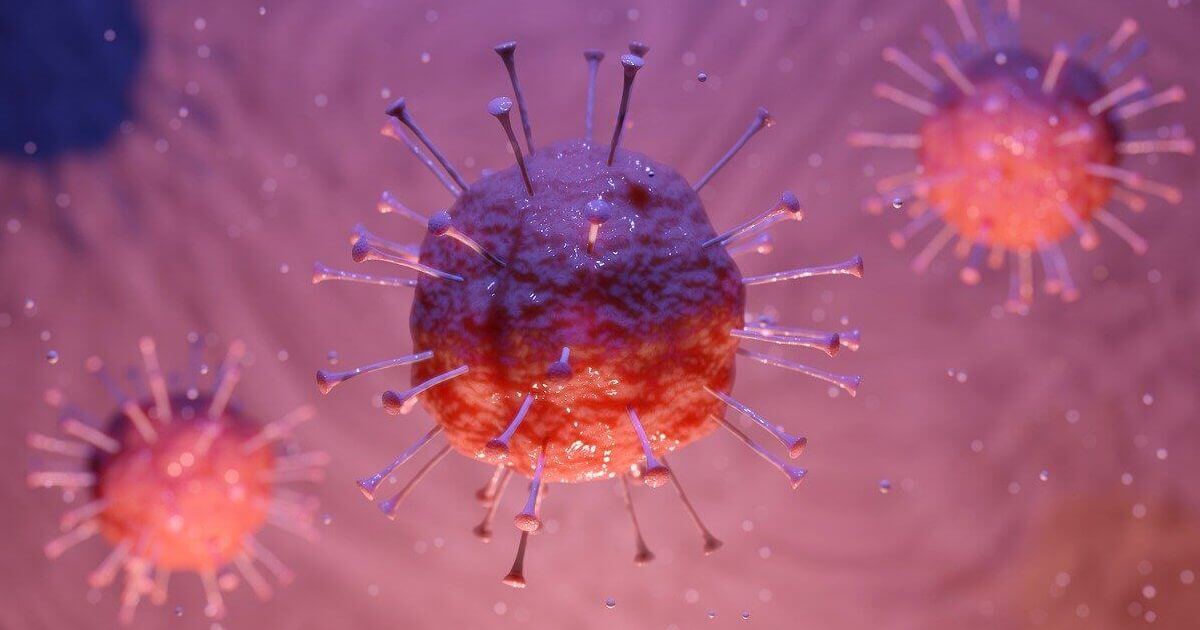Can My Bearded Dragon Get Covid-19?
Can Bearded Dragons get Covid-19? Can you pass it on if you are infected? Can they pass it to you if they are? In this post we look at these questions and more

Last Updated: November 22nd, 2021
By: Steve
Table of Contents
Or Can I Pass Covid-19 On To My Bearded Dragon?
Update: 2021, The CDC states that reptiles (including therefore, bearded dragons) have not been affected by Covid-19. Their information was last updated (at time of writing) on 9th September 2021. A study on August 1st 2020 indicates that reptiles are at very low risk[1].
This question has come up on various online sources we’re involved with so we thought it would make sense to write a small article about it and try to answer it as best we can.
Before we start, we’d like to point out that the administrators of Bearded Dragons Rock are human Registered Healthcare Professionals. The information we provide in here is inline with the UK Government and NHS advice current at the time of writing. However, the situation is evolving almost daily and the advice may also change. For up to date advice on protecting yourself and your family please check https://www.nhs.uk/conditions/coronavirus-covid-19/ – do not rely on advice from non-official websites or social media. Official information for other countries is available at the bottom of this article.
Where Did Covid-19 Come From?
There’s a huge amount of speculation surrounding where Covid-19 (also known as Wuhan Novel Coronavirus) originated. It’s known of course that the geographic location was Wuhan in China. But there’s speculation that the virus jumped from an animal host to human host in or around the end of December of 2019.
Much information about Covid-19 is speculation at the time this article is written. Most academics in the subject appear to be of the opinion that Covid-19 originated in bats. There has been some speculation that it originated Pangolins and/or snakes. The evidence around this seems unreliable at best though.
If It Originated In Snakes, Can My Reptile Catch It?
Bear in mind, the notion that Wuhan Novel Coronavirus (Covid-19) originated in snakes is only a possibility. However, since it has been a question we’ve been asked, we’ve written this article to address the issue.
The truth though is, we really don’t know. If the virus originated in snakes and then jumped to humans (still a big if) then has the virus had to mutate in order to jump species? If it has, then it may no longer be compatible with a reptile host and may not pose any threat to your bearded dragon even if you get it.
If the virus hasn’t mutated in order to jump species then it is potentially possible that you could give the virus to your bearded dragon if you contract it yourself.
However, the truth is, we really don’t know.
[Update] Since this article was first written it has become the accepted norm that SARS-CoV-2 originated in bats, not snakes.
What Can I Do To Minimize The Risks?

So far, the evidence appears to suggest that transmission of the Covid-19 variant of coronavirus follows the same patterns of infection as other Coronavirus family members. That is to say the virus is likely to be transmitted through contact with respiratory secretions from an infected host. These respiratory secretions can be propelled through the air by sneezing or coughing. There is potential for infection through saliva too.
With that in mind, the best way to avoid infecting your bearded dragon (bearing in mind we’re not saying it’s possible or not – we simply don’t know) is to practise good hygiene.
Do
- Wash your hands with soap and water before and after handling your lizard.
- Cough into your flexed elbow (rather than your hand) or a tissue.
- Discard any used tissues into the bin immediately after you use them. Wash your hands with soap and water immediately after discarding the tissue.
- Regularly disinfect surfaces you’ve had contact with.
- Avoid mixing your dragons with other people’s pets.
Don’t
- Touch your dragon without having washed your hands first.
- Touch your own eyes, nose or mouth without first washing your hands.
- Cough over your dragon or their enclosure without covering your mouth. Dragons are inquisitive creatures and use their tongue to taste their surroundings.
- Have visitors to your house handle your bearded dragon.
The advice given by the health authorities to control the spread of the coronavirus through the human population is good advice and can also be used to reduce any risk to your bearded dragon. Again though, we must stress that at the time of writing there is absolutely no evidence that humans can pass coronavirus to their pets (but see the update below).
Update 6th April 2020
Furry Pets CAN Get Covid-19
For those of you with furry pets as well as scaly pets there is some potentially bad news. Recent studies indicate that your furry pets can contract Covid-19 – with cats being more susceptible to the disease than dogs according to the study.
However, please bear in mind, the study does NOT show that you can pass the disease to your pet. It only shows that they can contract it – but under specific test conditions. Whether or not you can pass it to your pet (or your pet to you) would need further study.
The study is available at https://www.biorxiv.org/content/10.1101/2020.03.30.015347v1.full.pdf and can be read by anyone. If you do read it, be aware that the study does involve the euthanasia of dogs, cats, ferrets and other animals. You may not like reading about that.
The study showed that cats were quite susceptible to the SARS-CoV-2 virus and that the virus replicated prolifically within the respiratory system of cats. It did not indicate whether the cats became symptomatic and it did not indicate that the infection could be spread from cats back to humans. Cat to cat transmission did occur however. The study does not indicate that human to cat transmission is possible and further study would be needed to confirm or deny this. (The method of infection for the study was very invasive).
It also indicated that dogs could replicate the SARS-CoV-2 virus but not as prolifically as cats. More research will likely be done by the team to determine why this is, since finding the answer to that could help human progression of the Covid-19 disease. The study implied (but didn’t state, since the test numbers were probably too low) that dog to dog transmission didn’t happen. However, from the study itself it would be hard to form a sensible conclusion on whether it is possible or not.
The study also investigated pigs, chickens and ducks. None of which were susceptible to SARS-CoV-2.
Do Not Panic Though – DO NOT DUMP YOUR PET
It’s sad that I have to add this. But I do. There’s been reports of pets being dumped because of the fear around Covid-19 and this could be exacerbated if people think they can catch it from their pet.
SARS-CoV-2 – the virus that causes Covid-19 is precisely that. A virus. It cannot materialise out of thin air. If your pet has it, it will be because it has caught it from you! There is NO POINT dumping your pet. Follow social isolation guidelines as well as personal hygiene and there is nothing to panic about. And remember, there is no evidence that your pet can pass it to you.
Summary
Despite rumours that Covid-19 may have originated in reptiles, we still feel that it’s highly unlikely your reptile is in any danger. If you become infected with Covid-19 your human family are at far greater risk of contracting it than your reptilian family.
With the updated study information available above it does seem possible that your dog or cat could become infected with SARS-CoV-2 and possibly develop Covid-19. However, it should be remembered that the study above shows that dogs and cats can replicate SARS-CoV-2 but it doesn’t show that they can contract Covid-19 through human to pet transmission. Our key advice here is to make sure you follow excellent hand hygiene and do not cough or sneeze near your pets. Cough or sneeze into your flexed elbow (not your hand) and then wash the affected elbow area with normal detergent immediately.
At the current time of writing we cannot find any evidence that reptiles are susceptible to the SARS-CoV-2 virus and are therefore unlikely to develop Covid-19. This may change if any further studies are done on bearded dragons or similar reptiles. We’re currently seeking advice from veterinarians on whether bearded dragons have the same chemical receptors necessary for replicating the virus, though our initial investigations suggest they probably do.
With all that in mind, the very best way to avoid spreading the disease, as with so many diseases, is to maintain excellent personal hygiene, hand hygiene in particular. Normal soap and water kills SARS-CoV-2 virus. You do NOT need to use antibacterial soap.
Follow the advice of the Health Authorities in your country for the best ways to avoid spreading it, and what to do if you get it.
NHS Coronavirus Advice
Australian Government Coronavirus Advice
American Centre For Disease Control Coronavirus Updates
Canadian Government Coronavirus Information
Stay safe! Chin up, don’t panic and remember, this too shall pass!
If you have any thoughts around this please leave us a comment below.
References
1:
Broad host range of SARS-CoV-2 predicted by comparative and structural analysis of ACE2 in vertebrates Joana Damas, Graham M. Hughes, Kathleen C. Keough, Corrie A. Painter, Nicole S. Persky, Marco Corbo, Michael Hiller, Klaus-Peter Koepfli, Andreas R. Pfenning, Huabin Zhao, Diane P. Genereux, Ross Swofford, Katherine S. Pollard, Oliver A. Ryder, Martin T. Nweeia, Kerstin Lindblad-Toh, Emma C. Teeling, Elinor K. Karlsson, Harris A. Lewin Proceedings of the National Academy of Sciences Sep 2020, 117 (36) 22311-22322; DOI: 10.1073/pnas.2010146117
ter C. A.,
